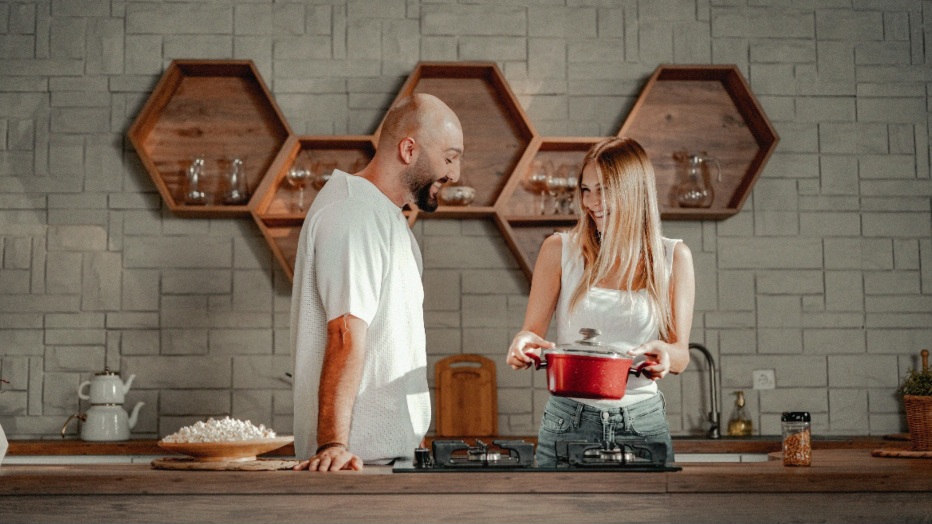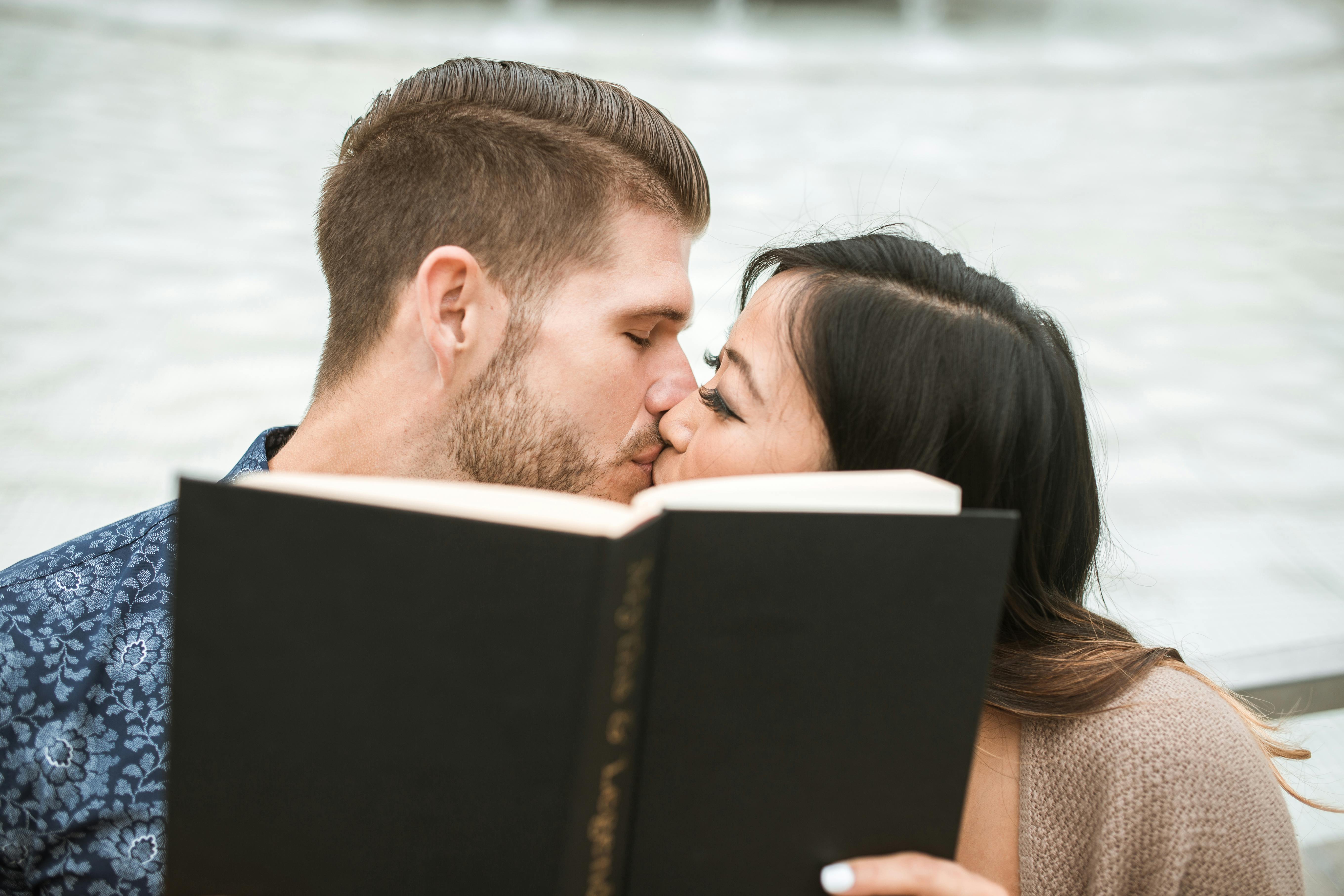In healthy relationships, partners rely on each other for support, intimacy, and companionship. But there is a spectrum in terms of just how dependent couples become on one another. On one end is total independence with separate lives. On the opposite extreme is codependence, defined by obsessive emotional or psychological dependence on a partner.
The ideal middle ground is known as interdependence, when you maintain a sense of self while entwining lives out of care and mutual growth, not neediness. Discerning the difference between healthy interdependence and unhealthy codependence is crucial for nurturing romantic bonds.
Signs of Interdependence in Relationships
Interdependence describes a relationship where both partners voluntarily provide each other with support and affection while retaining independence. They are well-rounded individuals choose to depend on one another and share a life out of care and trust - not neediness or inadequacy.
Contrary to codependence, interdependence doesn't consume either partner's identity or make them unable to function alone. Their lives entwine voluntarily, not out of desperation.
Here are 12 key signs of healthy interdependence in a romantic partnership:
- You have activities, friends, and interests apart from each other. Your lives don't revolve solely around your partner.
- You feel confident making decisions independently when needed based on your judgement. You consult each other for big choices.
- You communicate needs directly rather than passively going along with what your partner wants.
- You balance intimate couple time with time nurturing individual friendships and interests.
- You support each other's growth and celebrate individual achievements, not feeling threatened or competitive.
- You can healthily self-soothe anxiety or loneliness when separated. You don't experience extreme distress.
- You adopt each other's viewpoints at times but also feel comfortable voicing disagreements.
- You have mutual trust and do not control each other’s interactions with family, friends, or colleagues.
- You know each other’s flaws well but provide support to manage them rather than just criticism.
- You rely on each other for emotional strength but also seek fulfillment internally. Your worth isn’t defined by the relationship.
- You make an effort to nurture intimacy and romance - it doesn't fade as automatic or obligated.
- You feel just as fulfilled alone as sharing life together. The relationship adds to your happiness.
In essence, interdependence means two whole, responsible people choose to depend on one another out of desire - not because they are incomplete without their partner. It's intimacy by choice, not by necessity.
Ultimately interdependent couples choose to depend on each other because they genuinely want to, not because they feel they vitally must for survival and self-worth. The relationship adds value but does not complete them.
Signs of Unhealthy Codependence
While it's natural to rely on our romantic partners for affection and support, codependent relationships take this dependence to an extreme, unhealthy level.
In codependent relationships, at least one partner bases their entire identity, happiness and self-esteem around the other person. They obsessively fears loss, rejection or abandonment when apart. Here are some red flags:
Codependence refers to an imbalanced dynamic where one or both people base their entire self-worth and identity around their partner and the relationship. Their sense of purpose is contingent on the other person.
Here are 12 common signs of codependent patterns to watch out for:
- Having no personal interests, hobbies or friendships outside the relationship
- Experiencing intense anxiety when separated from your partner for any period of time
- Consistently neglecting your own needs, goals, or wellbeing to prioritize your partner's
- Staying in the relationship despite repeated disrespect, exploitation or abuse
- Having poor boundaries around privacy - oversharing everything with your partner
- Checking in excessively when apart and sharing every minute detail of your day
- Feeling unable to make even minor decisions without your partner's input
- Suffering harsh blows to self-esteem if your partner disapproves of choices you make
- Struggling to self-soothe and turning to your partner as your sole source of emotional regulation
- Dreading any conflict because you fear angering them and driving them away
- Making extreme sacrifices or changing core parts of yourself to prevent rejection
- Basing your entire sense of worth, validation, and identity around being in the relationship
Codependence essentially means you depend on your partner to an unhealthy degree. Your sense of identity, needs, and ability to cope disappear without them. They fill an emptiness in you rather than complement you. Recognizing signs of imbalance early is key to restoring a healthy interdependent bond.
Key Differences Summarized:
- Interdependence: voluntary reliance out of care. Codependence: compulsory reliance out of fear and deficit.
- Interdependence: you want to depend. Codependence: you desperately need to depend.
- Interdependence: mutual compromise. Codependence: self-neglecting submission.
- Interdependence: self-sufficient when alone. Codependence: inability to function alone.
- Interdependence: secure attachment. Codependence: extreme separation anxiety.
- Interdependence: balanced focus. Codependence: obsessive fixation on partner.
How Codependence Develops

Here are some common ways that unhealthy codependence can develop in romantic relationships:
1. Childhood Attachment Trauma
Codependent relationship patterns often form in response to insecure, inconsistent or negligent attachment experiences in childhood. If primary caregivers were emotionally unavailable or abusive, it can breed fears of abandonment that carry into adulthood. Adults may become codependent trying to recreate the connection they lacked from parents/guardians.
2. Addiction Issues
Partners of addicts frequently develop codependent behaviors like enabling, obsessive caretaking and self-neglect. They hope loving the addicted person enough will “fix” them. This sacrifice of self to maintain a dysfunctional relationship leads to codependence.
3. Low Self-Esteem
People lacking self-worth and self-confidence, often from past rejection, abuse or failed relationships, are more prone to codependence. They pursue extreme unhealthy closeness to derive a feeling of value from their partner’s reciprocation and validation.
4. Unmet Intimacy Needs
Individuals starved for emotional intimacy and connection, whether due to introversion, distrust or communication issues, may use a relationship to fulfill pressing attachment needs. When taken to an obsessive level, it becomes codependent.
5. Trauma Bonding
Shared traumatic experiences like war, disasters, losses etc. can also create bonds where people become overly dependent on each other to cope, especially if they isolate from other support. This traumatic bonding breeds codependence.
In summary, codependent relationship dynamics often arise from emotional deficits and insecurities people hope to resolve through a romantic partner. But true healing requires looking inward, not obsessive outward fixation. With self-work, unhealthy codependence can transform into secure interdependence.
How Codependence Erodes Relationships
Here are some of the main ways codependence can erode and damage romantic relationships over time:
- Breeds resentment around unfairness and imbalance from one-sided sacrifices. The codependent partner feels exploited.
- Enables negative behaviors like addiction, financial irresponsibility, or abuse by avoiding rocking the boat and failing to set boundaries.
- Stifles independent growth and outside relationships which are vital for personal fulfillment and well-rounded life balance.
- Creates a parent-child dynamic by having one overly responsible caretaker partner and one overly needy, helpless partner. Lacks equality.
- Leads to the codependent partner suppressing their own needs and desires and submitting to their partner's needs entirely. Creates dysfunction.
- Can invite extreme attempts to hold onto the partner at all costs like deception, threats of self-harm, and love-bombing. Toxic attachment results.
- Orients partners to be hyper-focused on and obsess over each other instead of looking outward together at the world. Stunts healthy bonding.
- Makes the non-codependent partner feel smothered, pressured and responsible for their partner's emotional stability. Burdensome.
- codependent partner's sense of self and worth becomes contingent on the maintenance of the relationship and partner's approval. Unstable self-esteem.
- Erodes attraction over time by destroying boundaries, individuality and equality. Codependence makes partners "needy" not autonomous equals.
At the end of the day, codependence erodes relationships because love, respect, passion and friendship must flow both ways. Sustainable long-term bonds require two complete, responsible individuals choosing to be together, not two incomplete, dysfunctional people clinging together out of fear, neediness or emptiness.
How to Cultivate Interdependence Instead of Codependence
If you recognize signs of unhealthy codependence in your own relationship, take action to nurture secure interdependence instead. Interdependence means each partner voluntarily provides support, intimacy and companionship while retaining independence and identity outside the relationship.
Here are 10 ways to foster interdependence rather than detrimental codependence:
- Build self-confidence through passions, friendships and activities that define you as an individual, not just part of a couple.
- Set clear boundaries around what behavior you will and will not accept in a relationship - controlling actions, disrespect, abuse. Stand by them. You can utilize the Couply app to set these boundaries with your partner easily.
- Work on attachment anxieties and people pleasing tendencies with a counselor. Seek healing for wounds that drive abandonment fears.
- Maintain close friendships, family bonds, and personal growth independent of your partner. Don't isolate. Use Couply's date idea feature to plan friend outings.
- Practice tuning into your own needs and desires - then expressing them clearly instead of just conforming to a partner’s wishes. Utilize Couply's check-in prompts.
- Develop tools to self-soothe worries when apart from your partner - journaling, exercise, fulfilling hobbies, mindfulness. Separation shouldn't feel traumatic.
- Don’t enable dysfunctional behaviors like addiction or financial recklessness. Allow natural consequences to inspire change.
- Get couple’s counseling to build secure attachment, healthy communication and mutual understanding.
- Reassure each other of your voluntary commitment to the relationship so abandonment anxieties fade. Exchange words of affirmation on Couply.
- Make space for individual self-care as well as quality couple time. Nurture all facets of your life.
By applying these steps, you can break unhealthy codependent patterns and develop a relationship built on secure interdependence. This involves two responsible, self-sufficient partners voluntarily choosing to share a life and relying on one other out of care and trust, not desperation, enmeshment or deficiency. With self-knowledge, boundaries and compassion, interdependence allows your relationship to flourish in sustainable ways.
About the Author

Sheravi Mae Galang is a Filipino psychometrician and writer who delves into the complexities of love and relationships. With a Bachelor's Degree in Psychology and a current pursuit of a Master's Degree in Clinical Psychology, she explores human relationships, focusing on the psychology behind attachments, communication, personal growth, and more. Sheravi aims to increase understanding of the factors that influence relationships in order to help people nurture stronger bonds.
You can connect with her through email (sheravimaegalang@gmail.com).








